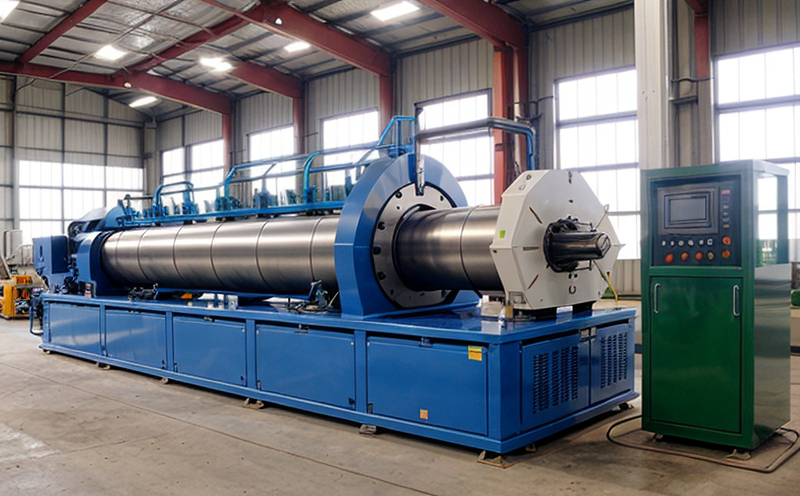ISO 14067 Greenhouse Gas Emissions from Recycling Operations
The ISO 14067 standard provides a framework for quantifying and reporting greenhouse gas (GHG) emissions and removals related to products, processes, or services. In the context of recycling operations, this service is crucial for ensuring that recycling efforts are not only resource-efficient but also environmentally responsible. By accurately measuring GHG emissions throughout the lifecycle of recycled materials, organizations can identify areas where improvements can be made to enhance sustainability.
Recycling plays a critical role in reducing waste and conserving natural resources. However, it is essential to recognize that recycling processes are not without their environmental impacts. The ISO 14067 framework helps companies understand these impacts by providing a standardized methodology for quantifying GHG emissions associated with the production of recycled products. This allows businesses to make informed decisions about how to minimize their carbon footprint while still meeting operational demands.
The service offered here involves conducting detailed assessments using advanced analytical techniques and software tools designed specifically for this purpose. Our team of experts will work closely with clients to ensure that all necessary data points are captured accurately, allowing for precise calculations based on internationally recognized standards such as ISO 14067:2018.
To achieve reliable results, we employ rigorous quality control measures throughout our testing process. This includes thorough validation of measurement instruments and continuous calibration against established reference materials. Additionally, our analysts have extensive experience working with complex datasets related to environmental impact assessments (EIAs), which enables them to provide meaningful insights into potential areas for improvement.
Our approach ensures that clients receive comprehensive reports tailored specifically to their unique operational scenarios. These documents include detailed breakdowns of emissions sources, trends over time periods relevant to specific projects or initiatives, and recommendations aimed at reducing overall carbon footprints through strategic changes within existing workflows.
Scope and Methodology
| Aspect | Description |
|---|---|
| Data Collection | Involves gathering raw data from various stages of the recycling process, including material sourcing, manufacturing, transportation, and end-of-life disposal. |
| Emission Calculation | Uses lifecycle assessment (LCA) tools to estimate greenhouse gas emissions based on collected data points. This includes both direct and indirect emissions associated with each stage identified above. |
| Reporting Standards | All findings are reported according to ISO 14067 guidelines, ensuring consistency across all reports generated by this service. |
The process begins with thorough data collection from multiple sources relevant to the recycling operation being analyzed. Once sufficient information has been gathered, our team utilizes specialized LCA software packages to perform calculations according to ISO 14067 criteria. The resulting report not only provides quantifiable results but also offers valuable recommendations for reducing emissions wherever possible.
Benefits
Implementing the ISO 14067 standard brings numerous advantages to organizations involved in recycling operations:
- Enhanced Transparency: Provides stakeholders with clear insights into the environmental performance of recycled products.
- Improved Decision-Making: Helps identify key areas where reductions in GHG emissions can be achieved, thereby supporting sustainable business practices.
- Credit Opportunities: Allows companies to claim carbon credits under various compliance programs if they successfully reduce their emissions below baseline levels.
- Compliance Assurance: Ensures that all activities comply with regulatory requirements set forth by relevant authorities worldwide.
By embracing this service, enterprises demonstrate their commitment to environmental stewardship and contribute positively towards global efforts aimed at combating climate change.
Environmental and Sustainability Contributions
- Promotes Circular Economy: Encourages the efficient use of resources by minimizing waste generation and maximizing material recovery rates.
- Reduces Energy Consumption: Identifies opportunities to optimize energy usage within recycling facilities, leading to lower operational costs and reduced environmental impact.
- Supports Local Economies: Facilitates the development of local industries focused on waste management and resource recovery, creating jobs and fostering community growth.
- Bridges Gaps in Knowledge: Provides essential data needed for continuous improvement initiatives aimed at enhancing overall sustainability performance.
The ISO 14067 standard plays a vital role in promoting these benefits by offering a robust framework that guides organizations toward more sustainable practices. Through accurate measurement and transparent reporting, this service helps pave the way for greener recycling operations globally.





